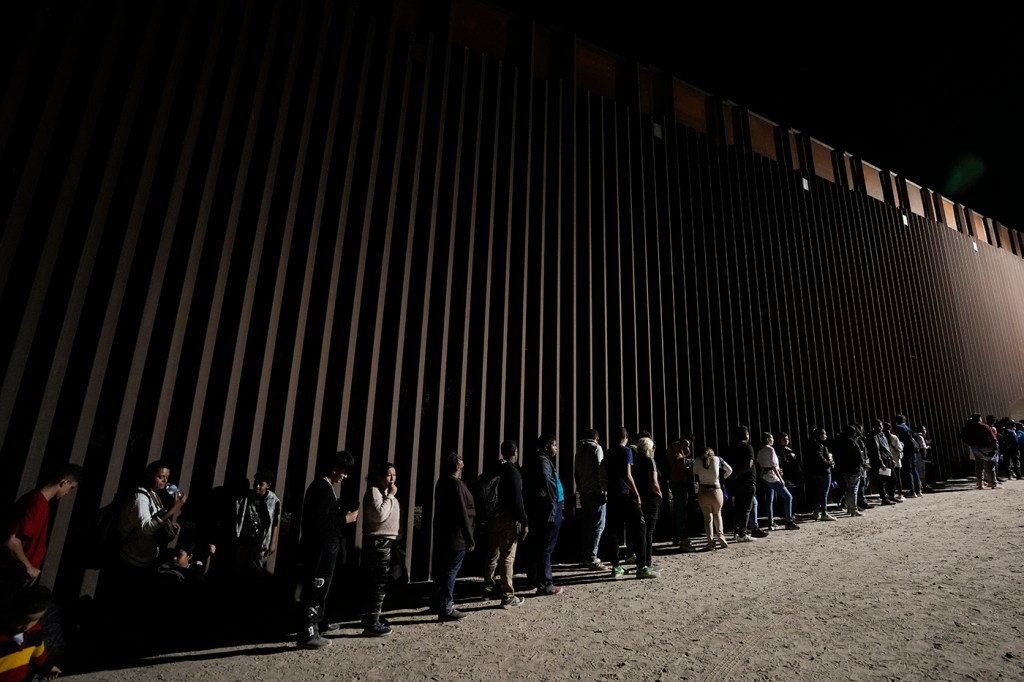Data is clear that immigrants don’t increase crime in the United States, expert says
Donald Trump has staked his deportation plan on claims that migrants are bringing crime to the U.S. A criminologist says the data consistently indicates otherwise.

President-elect Donald Trump is entering the White House with an ambitious day one agenda of executive orders and policies, chief among them a mass deportation plan that would target millions of undocumented immigrants.
Trump has mentioned scaling back the federal program granting temporary legal status to hundreds of thousands of immigrants, deputizing local police departments to act as ICE agents and targeting immigrants with criminal records. On the campaign trail and after the election, Trump has argued these efforts are necessary to cut down on what he calls “migrant crime.”
However, despite repeated claims by Trump and others that immigrants are bringing more crime to the U.S., Jacob Stowell, an associate professor of criminology and criminal justice, says the data clearly shows otherwise.
“There’s absolutely no evidence –– none whatsoever –– that that’s what’s happening on this unprecedented level,” Stowell says. “Not only is crime not going up, it’s not even remaining static. It’s continuing this downward trend as immigration continues to grow.”
National crime rates peaked in the 1980s, but between 1980 and 1990 it dropped by 30.8% and since then has fallen dramatically year over year, Stowell notes. In fact, almost every major form of crime, from violent crime to property crime, has decreased in that time period. It’s not just a historical trend either: Between 2023 and 2024, violent crime fell by 10.3%.
In that same time period, the immigrant population in the U.S. has skyrocketed. In 1980, the foreign-born population in the U.S. accounted for only 6.2%; it hit 15.6% in 2024.
“When people say crime is on the rise, it’s among the safest times to have ever been in America, and it also corresponds to a time when we’ve seen an unprecedented influx of foreign-born individuals,” Stowell says.
Stowell says that if the claims that criminal migrants are driving an increase in violent crime were true, “it would bear out in the statistics. It would have to, especially with violent crimes.”
But, in most cases, immigrants not only don’t increase crime in communities, their presence decreases crime. The relationship between crime and immigrants is near universal across the country, Stowell says: In communities with more immigrants, crime rates, specifically homicide rates, are lower.

It’s such a prevalent trend that criminologists have taken to calling it the immigration effect.
However, undocumented immigrants, the people Trump and his administration are most focused on deporting, complicate the data somewhat. There are few good estimates for the number of undocumented immigrants in the U.S.
Editor’s Picks
Instead, one of the ways researchers have navigated around this issue is by focusing on specific areas of the country where there are large, known undocumented populations, usually in cities along the country’s southern border like San Diego, San Antonio and Miami.
“It’s still true that in the communities that have the largest shares of the foreign-born populations both conventional and then by extension in these border communities … [that] also have large numbers of undocumented folks we still see this beneficial immigration effect,” Stowell says. “It’s so much so that immigration scholars don’t even wonder if there’s an immigration effect. It’s taken as an established fact.”
Stowell acknowledges that there have been clear high-profile cases where undocumented immigrants have committed violent crimes, but they are “really rare.” Researchers have found that undocumented immigrants actually have lower criminal offending rates than natural-born U.S. citizens.
As for the impact of deportation on crime, Stowell says removing immigrants from their communities can make a difference, just not in the way that deportation proponents intend.
“What happens is deporting could actually lead to more crime because it’s removing valuable members of a community, people who contribute,” Stowell says. “When folks are removed from these networks, what happens is communities suffer because they are resources. … Even the deportation push itself could lead to more crime because of that disengagement or disenfranchisement [from police] or fear amongst a segment of the population.”











